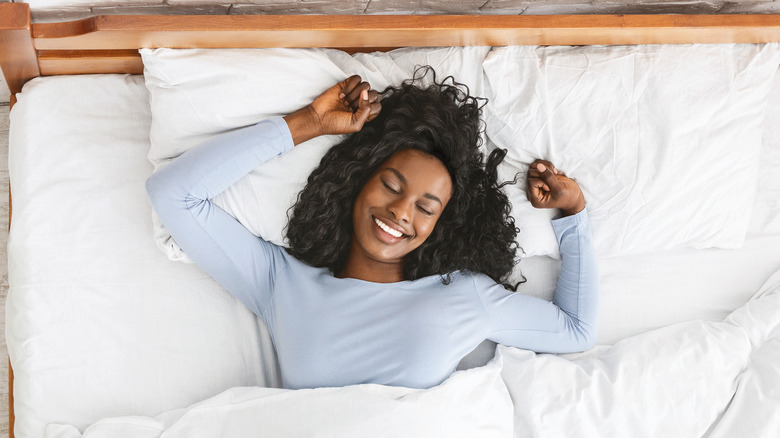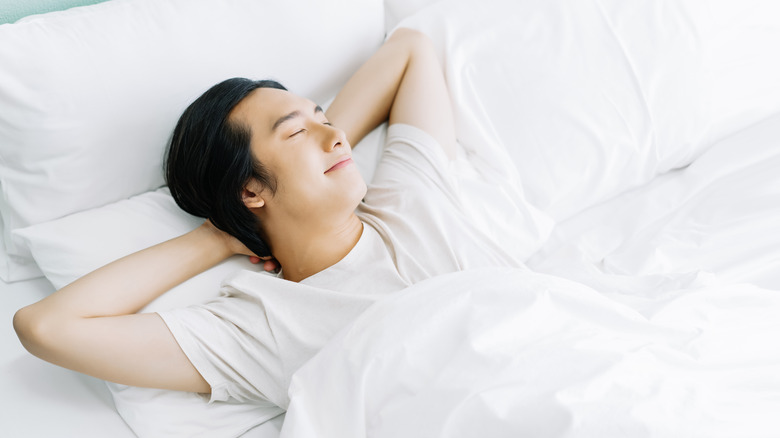The Real Reason Single People Get Better Sleep
With the stress of day to day life, never ending to-do lists, and the constant stimulation of technology always at our fingertips, it's not shocking to hear that Americans are falling short of the Centers for Disease Control and Prevention's recommended seven hours of nightly snooze time (via CNN).
According to a survey of over 2,000 participants, mattress manufacturing company Amerisleep found that of the many contributing factors that affect sleep quality, those who identified as single turned out to get more hours of sleep per night than those who indicated alternate relationship statuses (such as married, engaged, in a relationship, or divorced). Research showed that single people maintained the longest average nightly sleep time of 7.13 hours.
Studies conducted by the Better Sleep Council discovered similar findings in their research. The results of their surveys showed that 26% of couples felt they got better quality sleep when sleeping by themselves. Even more surprisingly, as many as 63% of couples choose to sleep separately throughout the night. Nearly two out of 10 Americans responded saying that their ideal home would include more than one master bedroom.
Single people experience fewer sleep interruptions
Research conducted in recent years found that the number of hours slept per night across the U.S. is dropping. "Results of an annual survey show that the respondents' average night's sleep decreased to five hours, 30 minutes in 2019 from six hours, 17 minutes in 2018" (via Family Safety & Health). So why does sleeping partner-less provide us with better sleep?
One possible answer to this question may be sleep interference due to a partner's snoring. The Mayo Clinic conducted a sleep study monitoring ten married couples over the course of a night where the husbands had been diagnosed with sleep apnea (via Science Daily). Sleep apnea, defined by the Sleep Foundation, is a disorder where people undergo irregular breathing cycles while asleep, including sporadic pauses and sudden intakes of breath. The study proved just how disturbing snoring can be for a sleeping spouse. By using oxygen masks to treat snoring symptoms, John Shepard, M.D., senior author of the study stated, "The average percentage of time that spouses spent sleeping increased from 74 percent to 87 percent, which adds more than an extra hour of sleep per night."
No doubt there are benefits to sleeping alone as well as with a partner. Snoozing alongside a loved one may provide increased feelings of comfort and security, and that may contribute to more sound sleep. But sleeping alone may also provide a deeper slumber due to less interruptions.


